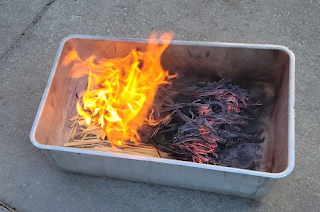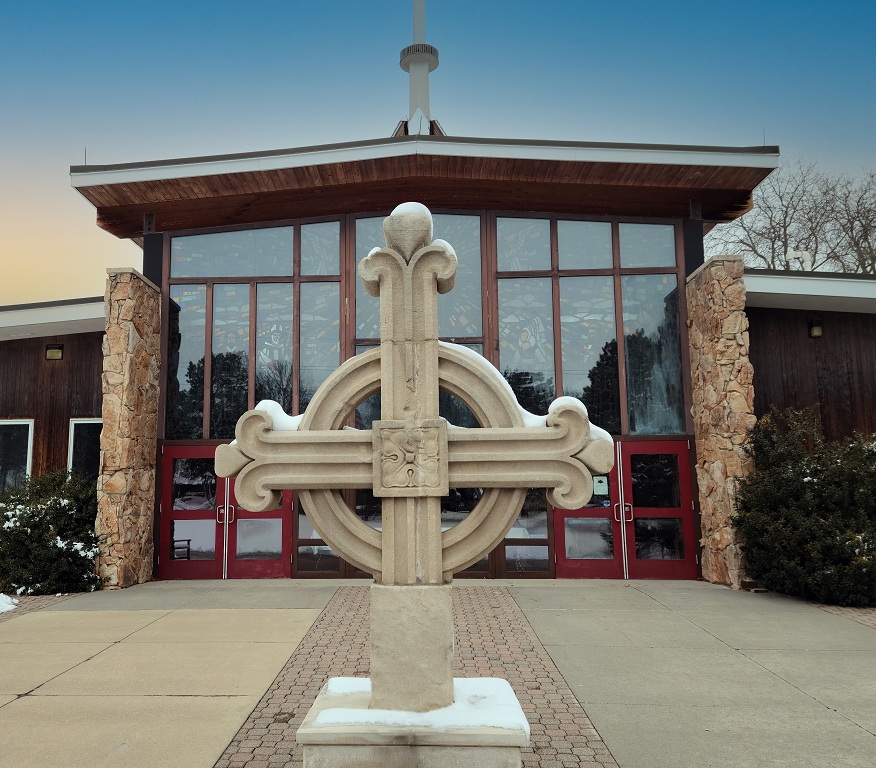Be salt...Be light
Jesus
said, “You are the salt of the earth…you are the light of the world” (Matt 5:13a, 14a).
My son
Bobby had a piano competition all day Saturday. It’s a big event, with hundreds
of kids from all around the city who take piano lessons. There are eight categories,
like identifying chords, site reading, music theory, and performance. The
organizers do everything they can to make it a fun event—it’s actually called
the “Fun Fair.” It’s a wonderful thing, and I’m very grateful for all of the
teachers and parent volunteers who work really hard to make it happen, to make
it fun for kids to play and learn about music. This might be one of those
“participation award” events, where you get a ribbon just for showing up.
The participation
award mentality is what Isaiah is scolding Israel about in today’s Old
Testament reading. Here’s just a bit of background: The single book of Isaiah
in our Bibles, we think, was written by at least three different authors, over
the span of 200 or more years. First Isaiah, as it’s called, chapters 1-39,
contains the words of the actual prophet named Isaiah who lived in the eighth
century BC. Israel had become arrogant, its people cruel and selfish; they had
forgotten their covenant with God to have compassion on the poor and oppressed.
The rulers, the priests, the prophets, and the people had become corrupt, and
Isaiah has a strong warning of punishment and exile if they don’t repent and
return to God’s ways. Second Isaiah, chapters 40-55, was written by an
anonymous author in the sixth century BC while God’s people were actually in
exile, and it offers hope for restoration and redemption and a return to glory.
Third Isaiah, where today’s reading comes from, chapters 56-66, was written
after the return from exile to Jerusalem, the very late sixth century—about 520—BC.
It again provides pleas and warnings for the re-patriated Israelites, because on
their return they have quickly fallen again into disregard for
God’s will. Isaiah is a powerful book, and its influence extends beyond the
Church and Christianity to English literature and to Western culture in general:
you hear it in much of the text Handel's Messiah, and in everyday
phrases like "swords into ploughshares" and "voice in the
wilderness". When Jesus quoted from the prophets, it was from Isaiah more
than any other.
So…in
today’s reading, Israel has returned to Jerusalem, they’re rebuilding the
Temple, and things should be going great. “Day after day they seek God and
delight to know God’s ways…” Isaiah says…but, it’s only “as if
they were a nation that practiced righteousness…” Their worship and their
fasting, Isaiah tells them, will not make their voices heard on high. They
don’t get a participation award, it turns out, just for showing up, just for their
religious observance. No, instead, God speaks to them, “Is not this
the fast that I choose: to loose the bonds of injustice, to undo the thongs of
the yoke, to let the oppressed go free…to share your bread with the hungry, and
bring the homeless poor into your house; when you see the naked, to cover them…Then
your light shall break forth like the dawn.”
The prophetic
point couldn’t be more clear: acts of religious devotion are meaningless when
they are divorced from acts of justice and righteousness. True repentance is a
journey inward for self-examination that must, ultimately, end up
as a journey outward, culminating in a life lived that mends the
world.
This mending
what Jesus talks about in today’s Gospel: his followers have an important role—being
salt, and light. This reading is at the beginning of the Sermon on the
Mount—the entire sermon takes three chapters in Matthew. Last week we missed
Jesus’ opening words in the sermon, because we heard the Feast of the
Presentation readings instead of the regular readings for the Fourth Sunday in
Epiphany. We missed those opening words that set the scene for the rest of the
sermon—they are the most familiar part—the Beatitudes. So in today’s reading, when
Jesus continues the sermon, saying, “You are the salt of the earth…you are the
light of the world?”…The “you” is the ones Jesus just referred to in the Beatitudes:
the poor in spirit, the meek, those who mourn, those who hunger and thirst for
righteousness, the merciful, the peacemakers, the pure in heart. We can’t tell
so much in our translations, but this “you” is emphatic. The pronoun “you” is actually
redundant in Greek; the verb lets everyone know it’s second-person plural. “You”
is only added for emphasis. And its placement in the sentence, at the
beginning, makes it even more emphatic. So it would be better if we heard the
reading more like this: “You—you yourselves—you all listening
right in front of me—you are the salt of the earth—you
are the light of the world—you, and not the Pharisees
and Scribes.
Jesus
says God does not hand out a participation award just for showing up. “Unless your
righteousness exceeds that of the scribes and Pharisees, you will never enter
the kingdom of heaven.” Now, Matthew uses this phrase, “the kingdom of heaven,”
twenty-nine times. And it doesn’t mean a place up in the clouds—it means the
kingdom of God—the reign of God. Matthew’s Jesus says things
like: you will only enter the kingdom of heaven if you come as little children…the
kingdom of heaven is like a mustard seed, growing from tiny things…the kingdom
of heaven is like a wedding banquet where the people with engraved invitations
(like the Scribes and Pharisees) stay home, so people from the streets, good
and bad, are welcomed. …the kingdom of heaven is like a generous landowner who
pays those who work one hour the same as those who work twelve hours…
The Pharisees
and scribes thought of themselves (and so did the other people) as examples of
righteous living. But it is clear that, in Jesus’ eyes, the opposite is true.
The kingdom of heaven, the reign of God, is a way of living, a way of being, that
we start to live in even now when we proclaim the dawning of new hope and new
life in Jesus. We live our lives already in the reign of God when we show the
world how to “loose the bonds of injustice, undo the thongs of the yoke, let
the oppressed go free…share bread with the hungry, and care for the homeless
poor.:
I’ve
been to two ordination in the past few days, and part of one of the prayers in
that liturgy really jumped out of me both times. We prayed: “…Let the whole
world see and know that things which were cast down are being raised up, and
things which had grown old are being made new.” How does the
whole world see and know these things? It’s certainly not because,
like the Pharisees and Scribes, we flash the participation awards we got from just
showing up here. Jesus doesn’t say we should try to be salt and
light—Jesus says we are the salt of the earth, we are
the light of the world. Our light—Jesus’ light shining in us—breaks forth into
the shadows of this world like the dawn, and the gloom of the world becomes
like midday.
Jesus
says he didn’t come to circumvent the law and the prophets, he came to complete
it, to fulfill it. All of the law Jesus fulfills, and commands us to observe,
is summed up in “love God, love your neighbor.” All of the prophecy Jesus
fulfills, and commands us to prophesy to the world, is the prophetic Good News of
God’s demand of justice for the poor and God’s command of sharing abundance with
the hungry and God’s commission to make the enslaved free.
The
function of salt is to bring out richness and harmony and reduce bitterness. The
function of light is not to be seen itself, but to let other things be seen as
they are. My prayer for us all this week is that we will remember that we are
salt to a world that lost its balance and needs to tame its bitterness, that we
will remember we are light to a world that is groping and stumbling and crying
out in the darkness. Jesus said, “You
are the salt of the earth…you are the light of the world.”
Be who you are in Jesus. Be salt. Be light. Amen





Comments
Post a Comment